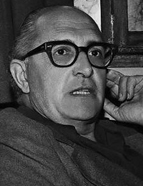

This bitter tone is perceptible in several of his letters. He confided to Padre Manuel Antunes that he was frustrated by the cowardice of the Portuguese, the cowardice behind not awarding him literary prizes and forcing him to leave his manuscripts to wither away on his editors’ desks (Antunes, “Sena, Jorge e Mécia...” [Jorge de Sena and Mécia…”, p. 175). Indeed, when Sena states that the Portuguese do not acknowledge their great men and that the country is overrun with mediocre and ungrateful individuals (O Reino da Estupidez-II, pp. 163-166), one cannot but assume that he is including himself among the country’s great men.
When analysing Jorge de Sena from a historiographical viewpoint, with the knowledge that his work did not focus on this scientific field, it is important to understand the extent to which his life and work contribute to the interpretation of Portuguese history. From this perspective, it may be inferred from the books and letters, such as those previously mentioned, that regardless of the literary genre or topic addressed, Sena’s work is framed by an analysis of the ways of being of a people he both loved and hated. However, as noted above, it is clear that despite his fascination with Portugal's fate in a cultural context, Jorge de Sena avoids resorting to patriotic statements or flattering psychological characterisations. It might even be said that his work “deliberately contests the established cultural myths” (O Essencial Sobre..., p. 58). It is precisely this opposition to the established cultural myths that one encounters in O Indesejado [ The Unwanted] (António, Rei) (1951), a historical tragedy in verse where the rejection of King Sebastião’s mysticism is highlighted through the characterisation of the anguished fate of D. António Prior do Crato (1531-1595), son of prince Luís and a candidate to succeed King Sebastião. By depicting D. António as a hesitant and fearful character, who, to no avail, pursues the recognition of his fellow countrymen in order to spare the kingdom from dependence on the Philips, Sena, devoid of patriotic aggrandizement, gives the same pessimistic tone to this historical event as that used to describe the Portuguese cultural scene in his other writings. After all, as a man whose fate has been decided on the basis of his illegitimacy and fearfulness, D. António cannot rise to hero.
Alongside his plays, Jorge de Sena’s fiction offers a more in-depth understanding of his historical viewpoints. As noted above, the poet was particularly sensitive to egalitarian and democratic values, and to an almost existentialist obsession with freedom. Since the latter is a concept with many different meanings and not restricted to individual freedom but rather to each society's ability to live according to its potential and to seek material abundance and equity, it is perhaps appropriate to underline that Sena’s concern with freedom is related to his desire to study man in his essence.
